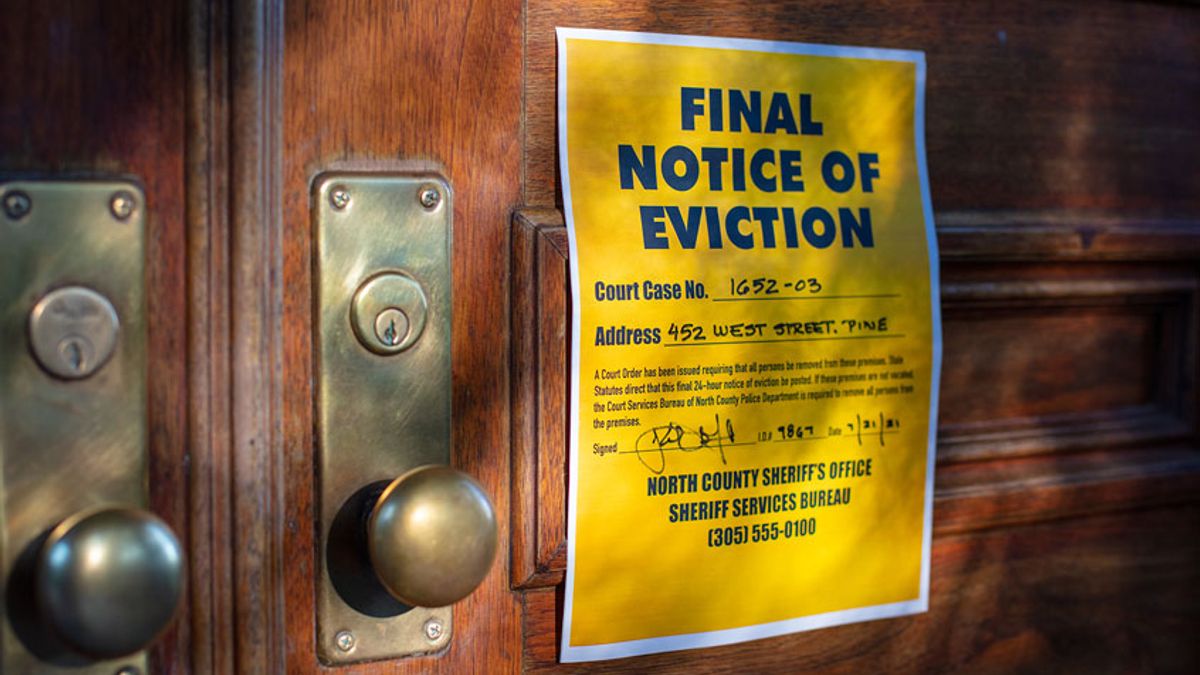Are you wondering how much can i sue my landlord for emotional distress? Landlords can be held legally responsible for causing emotional harm to their tenants. In this article, we will explore the factors that determine the amount someone can sue their landlord for emotional distress. We will also discuss what tenants need to do to establish legal liability and prove their claim.
Read on to find out more about how much you can sue your landlord for emotional distress and what you need to know before taking legal action.
Can Tenants Sue Landlords for Emotional Distress?

Yes, tenants can sue landlords for emotional distress if they can prove the landlord's deliberate or negligent conduct caused them mental or emotional harm. This can result from issues such as breach of lease agreements, unsafe living conditions, or failure to return a security deposit.
However, proving emotional distress can be challenging, as it is a subjective matter that is difficult to quantify. The onus is on the tenant to provide evidence, and complicated cases are often unsuccessful. Landlords can safeguard themselves by becoming familiar with and following the laws to prevent legal issues and negative ramifications.
State-by-State Differences in Landlord Emotional Distress Lawsuits
Laws regarding emotional distress lawsuits between landlords and tenants vary by state, with different levels of protection for tenants. In some states, claimants need to prove the landlord's behavior was outrageous, while others require proof of recklessness or intentionality.
Emotional distress claims must show a causal relationship between the landlord's actions and the tenant's damages, along with verifiable injuries and damages. Due to the complexity of these cases and the differences in laws, it's recommended that both parties seek legal counsel to navigate the legal system effectively.
What Tenants Must Demonstrate?
To establish legal liability, tenants must demonstrate that the defendant's conduct was outrageous and intolerable. To meet the burden of proof, tenants must prove that the landlord's actions went beyond the bounds of decency, would be considered atrocious by any reasonable person, and were utterly intolerable in a civilized community.
The judge will consider various factors, including the tenant-landlord relationship, abuse of authority, the tenant's vulnerability, and the ongoing nature of the conduct to determine whether the landlord's behavior violated generally accepted standards of decency and morality.
What Are Legitimate Reasons for Tenants to Sue Their Landlord?
As a tenant, you have the right to sue your landlord for various reasons. Here are some legitimate reasons why you can take legal action against your landlord:
- Breach of Lease Agreement
- Unsafe or Uninhabitable Conditions
- Failure to Return the Security Deposit
- Illegal Rent Increases
Breach of Lease Agreement
As a tenant, you have legal recourse if your landlord fails to meet the obligations stipulated in your lease agreement. In the event of a breach, you may have grounds to sue your landlord. However, before taking any legal action, you must prove that the landlord has committed a significant breach of the agreement.
If the breach puts your health or safety at risk, you have the right to terminate the lease agreement. You must provide written notice to the landlord, detailing the specific actions or failures that constitute the breach. Additionally, you must inform the landlord that you will terminate the agreement if they do not remedy the breach within a week.
If your landlord fails to fulfill their obligations under the lease agreement, you can request a reduction in rent. However, you must do this in writing, specifying the conditions that constitute a breach of the agreement.
Unsafe or Uninhabitable Conditions
When a rental property has defects or conditions that make it impossible for a tenant to live there, it is considered to have "uninhabitable living conditions." While this term does not have a precise legal definition, it typically refers to situations where a tenant's health, safety, or well-being is at risk due to the property's condition.
Some common examples of uninhabitable conditions include broken windows, missing deadbolt locks on exterior doors, low water pressure, unlit stairways, inadequate heating or air conditioning systems, and malfunctioning security gates.
Failure to Return the Security Deposit
One common reason for disputes between landlords and tenants is the failure of the landlord to return the security deposit. Tenants pay this deposit at the start of the lease to cover any damages or unpaid rent at the end of the lease term. When the lease ends, the landlord must return the security deposit, deducting only the necessary amount for unpaid rent or damages beyond normal wear and tear.
However, some landlords might withhold the security deposit without a valid reason, leading to a dispute with the tenant. In such cases, tenants may have legitimate grounds to sue the landlord for the return of their security deposit. To start with, tenants should try negotiating or sending a written demand letter to the landlord before taking legal action. In some states, sending a written demand letter is compulsory before proceeding to small claims court. Writing a letter is also useful as it shows the tenant's knowledge of their rights and may encourage the landlord to return the deposit voluntarily.
Illegal Rent Increases
Rent increases during a tenant's occupancy are usually prohibited by state laws, unless otherwise stated in the lease agreement. If landlords try to increase the rent without proper notice or justification, tenants have the right to take legal action against them. If tenants experience illegal rent increases, they can file a complaint with the local housing authority or take legal action against their landlord.
Related: Can A Landlord Kick You Out For No Reason?
How much can I Sue My Landlord for Emotional Distress?

The amount someone can sue their landlord for emotional distress depends on several factors such as the severity of the landlord's actions and their financial resources.
Typically, compensation for pain and suffering ranges from 2 to 5 times the total costs of medical bills and lost wages from missed work. In some states like New York, the maximum amount can be up to $200,000, while in New Jersey, it can be up to $300,000.
To determine the appropriate compensation, the court will consider the severity of the landlord's actions and their financial capacity to pay. It's important to note that laws vary by state, so consulting with an attorney who can advise on the available damages is best.
Regardless of the reason, if a landlord has caused emotional distress, seeking legal advice and taking action is crucial. Suing for emotional distress can assert tenants' rights and hold landlords accountable, but it should always be a last resort.
Related: How To Sue My Landlord For Unsafe Living Conditions
Conclusion
To conclude, compensation for emotional distress in a lawsuit against a landlord depends on various factors such as severity of the actions and financial resources of the landlord. Pain and suffering compensation is generally 2 to 5 times the total costs of medical bills and lost wages. In certain states, like New York and New Jersey, the maximum amount can be higher, with New York allowing up to $200,000 and New Jersey up to $300,000. Seeking legal advice from a lawyer specializing in landlord-tenant law is advisable to determine the best course of action.





